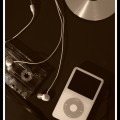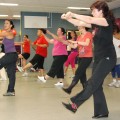
Music has always been loved, admired, and cherished by people all over the world. It has shaped cultures and communities in profound ways all through history. The first thing that you might describe of a tune that you like is that it emits a magical feeling.
Mystics and sages throughout time have narrated the healing qualities of music; however, these are more than just poetic musings. Music really can do a number on whatever is putting your mind down.
Cut Out The Pain
Several studies show how music plays a crucial role in the reduction of physical pain. In 2001, a study was conducted on patients with burns all over their body; burn patients are treated by scraping the dead tissue. Researchers discovered that music therapy did wonders at getting rid of excruciating pain. The patients that undergo colonoscopy also feel lesser pain and need less sedative drugs if they listen to music during the procedure.
A separate research at Glasgow Calendonian University discovered that people who listened to their favorite music felt lesser pain and could endure it for longer periods of time.
For Stroke Patients
Stroke patients often seek neurologically based music therapy, and for a good reason as well. Colorado State University’s Center for Biomedical Research in Music is working on how partially paralyzed people on one side can go back to walking in a more coordinated and faster pace if they practice walking with a rhythm. They used musical cues for this. The combination of physical therapy and rythmatic training helps stroke patients recover and gait a lot faster.
Cognitive Functioning
Music therapy also works to improve the mental state and functioning in people who have schizophrenia. This is according to a Cochrane review in 2007. Premature babies who listened to lullabies suck better and gain more weight than infants that weren’t exposed to music therapy. Deforia Lane, the director of music therapy at University Hospital’s Ireland Cancer Center in Cleveland, found that the immune response improved among the hospitalized kids who sang, played and made music as opposed to those who never went through any sort of music therapy at all.
However, the research conclusions were extremely important as they figured out how the influence of music could mimic the effects that are resultant of hormone replacement therapy when it comes to prevention.




